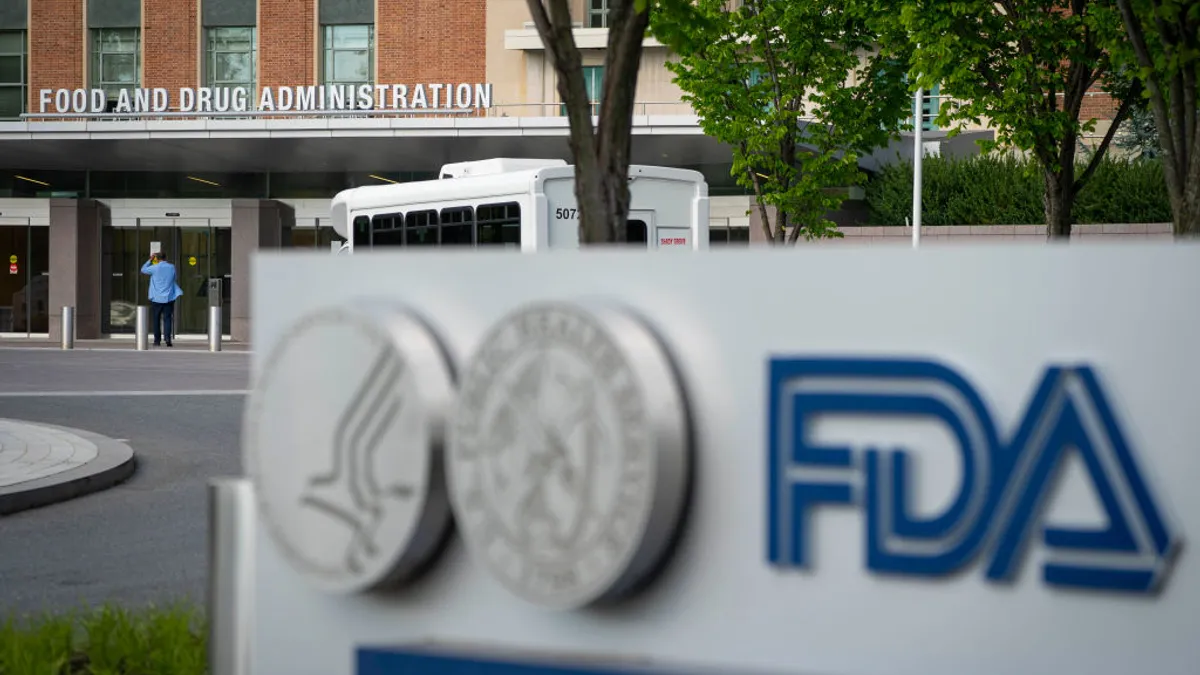Biopharma companies with technology platforms could soon see the wheels greased in the drug application process through the FDA’s newest program.
The FDA issued draft guidance for the Platform Technology Designation Program for Drug Development last month, which aims to create development, manufacturing and review process efficiencies.
To participate in the program, the FDA will examine if incorporating the platform technology will bring “significant efficiencies” in the application process and determine if the platform meets the eligibility requirements.
The FDA noted that its definition of “platform technology” may differ from the industry’s, and described it as a “well-understood and reproducible technology” including a nucleic acid sequence, molecular structure, mechanism of action, delivery method, vector or a combination of technologies.
As part of the program, biotechs and pharma companies with a designated technology platform would receive advice from the FDA during the development program, and prioritized interactions for products the agency sees as having “the most significant public health benefit or impact.”
R&D’s evolution
Drug development has changed rapidly over the last several years as platforms that can be used for multiple drugs enable companies to speed up the process
More efficiencies would be welcome to the industry. For the top 20 global pharma companies, the average cost of developing a new drug rose to $2.3 billion in 2022, according to a report from Deloitte, due to longer development timelines and the costly clinical trials process.
AI and automation have accelerated drug development and could lead to a 60% to 70% reduction in process timelines, PwC predicted. AI has been particularly impactful on discovery. More than 100 drug and biologic application submissions reported in 2021 included an AI or ML component, according to the FDA. The agency is still determining how it will regulate AI in drug development and plans to issue guidance for the industry in the future.
The new guidance formalizes already existing pathways for drugs developed on platform technologies, which are widely used. FDA officials previously stated the potential benefit of a formal platform designation program for gene editing, which the FDA cited as a technology appropriate for the program.
“It’s a very opportune time for the designation program to be put into the statute, especially with the lessons of the CRISPR product. The field is rife with opportunities where you may change one insert but otherwise leave the platform virtually unchanged,” said Phillip Kurs, regulatory counsel for FDA’s Center for Biologics Evaluation and Research, at the CASSS Well-Characterized Biotechnology Products conference in Washington, D.C., in January.
The program will allow companies that use a platform technology and have an approved new drug application, abbreviated new drug application or a biologics license application to request a platform designation for future applications. Companies can request a pre-submission meeting about their planned platform technology designation request, but the guidance outlined making the request at the same time or following an IND application.
The guidance was published to the Federal Register with a comment period running until July 29. BIO has already asked the FDA for a 30-day extension on the comment period to give stakeholders more time to develop feedback for the agency.









